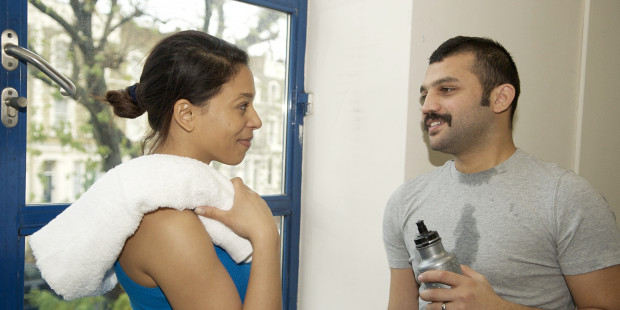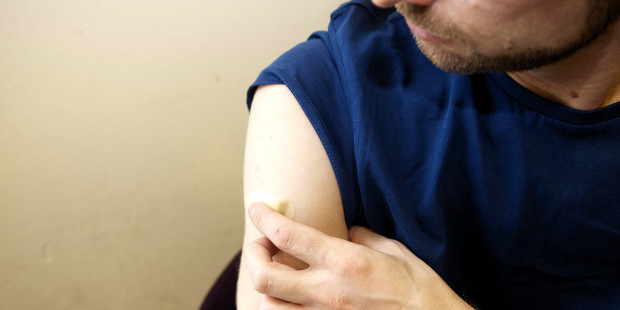Should I have the flu vaccine if I have HIV?
Yes. Because of the increased risk of complications and greater severity of influenza in people living with HIV, they are considered to be an at-risk group and are eligible for a free annual flu vaccination.
People living with HIV should also have the COVID-19 vaccination and they are a priority group in vaccination programmes.
When to get the flu jab:
The influenza vaccine (flu jab) protects against different strains of flu each season, so you will need to get one every year.
Doctors recommend that you get your shot between September and early November, but it can still be beneficial to get vaccinated until March.
You should also get a flu shot before you travel to certain countries.
You can get your flu jab through your GP and some pharmacies.
Is the flu jab safe?
Yes, the inactivated (non-live) flu jab is safe to have if you're living with HIV.
The intranasal version is not recommended as it contains live virus.
Will the flu jab interact with my HIV medication?
No. The flu jab does not interact with any HIV medications and is safe to have whatever HIV treatment you're taking.
Should I get any other vaccinations?
COVID-19 vaccination
People living with HIV are a priority group and recommended to have the COVID-19 vaccination and regular boosters. HIV medication will not reduce the effectiveness of COVID-19 vaccines, and getting a vaccine will not affect how well your HIV medication works.
Pneumococcal vaccination
It's recommended that people living with HIV are vaccinated to protect them against infections such as pneumonia, meningitis and septicaemia.
Because of their lowered immune response, people living with HIV require more frequent boosters – this includes pneumococcal vaccinations, which might need to be repeated after five years.
You will be able to get this jab from your GP, so you could have it at the same time as your flu jab.
If your GP doesn’t know about your HIV status, and you don’t want to tell them, speak to someone at your HIV clinic about where to get vaccinated.
Other recommended vaccinations
Because people living with HIV can experience more serious complications from other infections, it’s crucial that you’re vaccinated according to the recommended schedule.
You’ll also require more frequent boosters, so it’s a good idea to talk to your doctor about doing serological testing. This is a type of blood testing that will show if you’re still immune to the diseases that you were likely vaccinated for as a child, such as chickenpox and shingles, MMR (measles, mumps and rubella), or hepatitis B.
If you’re a man who has sex with men, you’re in a higher risk group for some diseases, such as hepatitis A and B, HPV and meningococcus, and should be immunised for those.
If you work in an industry with a high occupational risk of some vaccine-preventable diseases, such as anthrax or rabies, it might be less risky to get vaccinated (even with live vaccines, which were historically not recommended to people with HIV) than to risk serious complications of falling sick.
People living with HIV can in most cases be given the following live vaccines:
- MMR (measles, mumps and rubella)
- varicella-zoster vaccine against chickenpox
- rotavirus
The following inactivated vaccines can always be given:
- anthrax
- cholera (oral vaccine)
- diphtheria
- haemophilus influenzae type b
- hepatitis A
- hepatitis B
- HPV
- influenza (injection)
- meningococcal
- pertussis
- pneumococcal
- poliomyelitis
- rabies
- tetanus
- tick-borne encephalitis
- typhoid (injection).
People living with HIV should NOT receive the following vaccines:
- BCG
- influenza nasal spray
- typhoid (oral)
- yellow fever.
Find out more about seeing a doctor on our page on how the NHS works.




